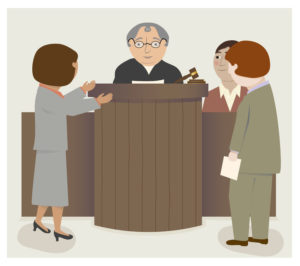The Expert Witness Under Missouri Law

Missouri has amended section 490.065 relating to the expert witness. The changes become effective on August 28, 2017. Under amended section 490.065, the following applies in certain actions concerning domestic relations, in all probate matters, and in all actions in which no trial by jury is allowed:
(I) If scientific, technical, or other specialized knowledge will help the trier of fact understand the evidence, a witness qualified as an expert by knowledge, skill, experience, training, or education may give his or her opinion about the evidence.
(II) The facts upon which the expert witness provides his or her opinion must be of a type reasonably relied upon by other experts in the field.
(III) If a proper foundation is laid, the expert witness may respond to hypothetical questions if the court believes that the use of hypotheticals will make it easier for the jury to understand the expert’s testimony.
In all other actions:
An expert witness may testify in the form of an opinion if:
(I) The expert’s knowledge will help the trier of fact understand the evidence,
(II) The expert’s testimony is based on sufficient facts,
(III) The testimony is the product of reliable principles and methods, and
(IV) The expert witness has reliably applied the principles and methods to the facts of the case.
An expert witness may base his or her opinion on facts in the case about which the expert has been made aware, or that the expert has personally observed. Such facts need not be admissible for the expert’s opinion to be admissible, if the facts are the kind that experts in the field would reasonably rely on in forming an opinion on the subject. However, if such facts would otherwise be inadmissible, the proponent of the opinion may disclose the otherwise inadmissible facts to the jury only if their probative value outweighs their prejudicial effect.
An opinion of an expert witness is not objectionable just because it embraces an ultimate issue. Unless the court orders otherwise, an expert witness may state an opinion and give reasons for the opinion without first testifying about the facts supporting the opinion. However, the expert witness may be required to disclose such fact on cross-examination.
Nothing in this statute prevents a person, partnership, association, or corporation, from testifying about the reasonable market value of land owned by such entity.
Sewell Law provides professional litigation services in the areas of business law, real estate, and torts. This article is for general informational purposes only, and it is not intended as legal advice.
Please contact Michael Sewell at (314) 942-3232, or at michael@sewelllaw.net., for a confidential consultation about your litigation matter.
The choice of a lawyer is an important decision and should not be based solely upon advertisements.
© 2016 Sewell Law, LC


